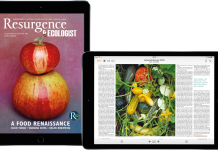 One of my e-book predictions for 2016 is already coming true.
One of my e-book predictions for 2016 is already coming true.
A few days ago, I predicted that public libraries would get into the e-game in a more substantial way—specifically: “On a related note, I am betting we’ll start seeing more devices of various kinds make their way into our public libraries.” Now, mere days later, a year-ender from the Toronto Star reports that our public library is going to start loaning out WiFi hotspot devices, to provide free web access for people who can’t afford it at home. From the article:
“City Librarian Vickery Bowles said the Toronto library has included $100,000 in its 2016 operating budget for lendable Internet at branches located in neighbourhood improvement areas, where there are larger numbers of people who might need the service.
“She feels Internet access has become an essential part of the services libraries should provide.
“’People who lack broadband Internet access at home, they’re really at a disadvantage when it comes to employment, looking for a job or access to government services and education,’” Bowles said.”
I love that our magnificently-named head librarian recognizes the educational opportunities the Internet can offer someone. When I taught an e-book unit to my Grade 3/4 class, Project Gutenberg was their favourite part. The idea that people could just open up a website and read as many books as they want—for free—blew their minds. They could have spent much more time on it, but alas, we had other curricular obligations.
I think that loanable Internet fits in perfectly with the mission of the public library system. Libraries first came about as a way to equalize the access to knowledge and information during a time when books were a luxury item. Now, knowledge and information has moved in part to this new format and is once again a luxury item for some. The library can fulfill its mission to equalize access once again.
Photo credit: “Yorkville Library” (part of the Toronto system) by Dhodges. Licensed under CC BY-SA 3.0 via Commons –


































Seems like a device like the Karma Go would be well-suited to this, at least in some respects. Given that anyone who creates a log-in grants 100 MB free to the owner of the hotspot, someone in a busy location might be able to surf a lot with minimal cash outlay.
@Chris: Nice tip. What’s more, the Karma might be great for libraries to loan out. Alas, not everyone lives in a busy location, so the user-to-user scenario is too iffy for the budget strapped. Library-loaned hotspots, as I’m 100 percent confident you’d agree, are still very much needed. Of course, at least in NYC, the hot spots must be returned. So some patrons with library hot spots now just might want to think about Karmas, in time, despite their shortcomings. Ideally the prices of the units will drop. I also wonder about some kind of income-based subsidies. Of course, good muni WiFi would be my favorite solution.
WiFi is becoming more and more important. I found that out with lightning took out my cable modem over Christmas. I discovered that without an Internet connection, Dropbox wasn’t even sharing files between my laptop and my desktop, even though they were mere feet apart.
That said, many middle-class people consider a cellular hotspot too expensive, so public libraries who attempt to do that are being mostly symbolic. They aren’t going to be able to supply enough for free to make much difference. The money would be better spent adding a public wifi to low-income housing.
Largely symbolic acts can even do more harm that good. They condition people to expect government to do something. It’s never enough, so that something ends up not getting done.
People with limited incomes already know how to work around these issues. I’m amused by those who sneer at poor people who, they think, are “wasting” money on what they consider a luxury—a low-end smartphone. When you don’t know from day to day where you’ll be staying, such a phone is a necessity. Being tossed out of your apartment doesn’t mean losing your phone. Email doesn’t depend on owning a computer.
That was true for me in another sense when I was living in Seattle and my writer’s income plus the high cost of living there put me so close to poverty I was juggling several part-time jobs. My iPhone meant I could be working at one job, get a call about a second, and check my calendar to make sure that date was clear. If I hadn’t had that phone, many work opportunities would have gone to someone else. It more than paid for itself.
Don’t think the solution to every ill is a program. Sometimes programs distract from better solutions, ones people can work out for themselves.
@Michael: Thanks for your valuable perspective, but the site move is still going on, so you and others should please avoid making comments now. Otherwise I fear that valuable facts and insights will be lost during the move, one reason I’ve just written a post devoted to our error about Kurt Vonnegut. The earlier comments now on the old site could be lost. As for the substance of your comments on the hotspots, I believe that cities should scrape up money for both approaches. Loaner WiFi will help whet low-income folks’ interest in the Net and other aspects of technology. At the same time, we need decent municipal WiFi, with proper arrangements for low-income people (including, of course, good coverage in public housing projects).